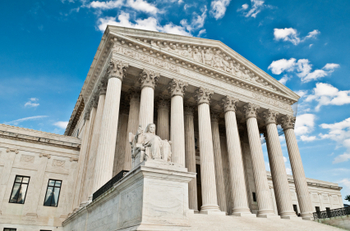
The Court clarifies FOIA and its exemptions.
In a series of cases decided this past term, the Supreme Court clarified provisions of the Freedom of Information Act (FOIA), which requires federal agencies to disclose information to the public upon request. The Act mandates broad disclosure but also contains nine important exemptions to its disclosure requirements.
In FCC v. AT&T, the Supreme Court decided a case involving FOIA’s exemption for law enforcement records. This exemption applies when disclosure would reasonably be expected to result in an “unwarranted invasion of privacy.” The Court held that this exemption does not apply to enforcement records involving corporations, as corporations do not have a right to “personal privacy” under the Act.
After FCC, the Court clarified FOIA’s exemption for “internal personnel rules and practices.” In Milner v. Department of Navy, the Court held that the personnel records exemption only covered information related to employee relations and human resources. Navy maps and data describing the location of explosives could not be withheld under this exemption.
Finally, in Schindler Elevator v. U.S., the Court addressed connections between FOIA and the False Claims Act (FCA). The FCA allows whistleblowers to file lawsuits on behalf of the government against those who defraud government programs. However, the statute also prohibits suits based on information gleaned from public disclosures, including government “reports.” The Court held that a federal agency’s response to a FOIA request constitutes a “report” and cannot be used in bringing a FCA suit. Justice Ginsburg, in dissent, argued that the majority’s decision will have a severe impact on whistleblowers’ ability to “substantiate their allegations” before bringing a lawsuit.



